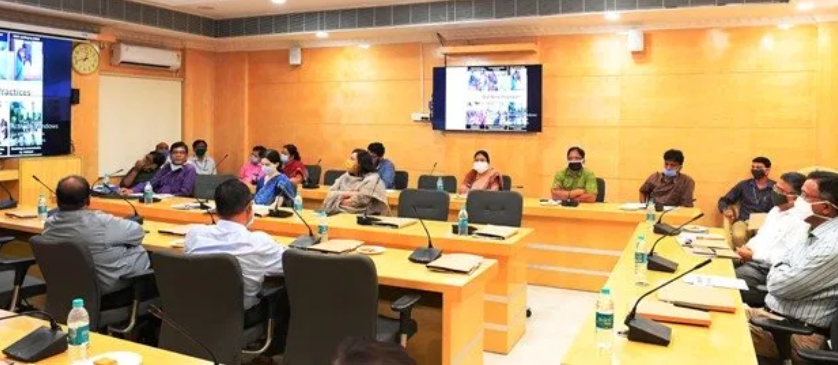Bhubaneswar : Odisha has made spectacular progress in containing the vector and water (V&W) borne diseases during the last years. This was known from the Inter-departmental Coordination meeting held under the Chairmanship of Chief Secretary Asit Tripathy in Lok Seva Bhawan Conference hall today wherein Additional Chief Secretary Health & Family Welfare Pradeepta Kumar Mohapatra outlined the issues and Special Secretary Health Smt Shalini Pandit presented the updates for discussions.
Looking into the progress made so far, Chief Secretary Asit Tripathy directed the department to workout an integrated IEC model for vector & water borne diseases with Covid-19; and, intensify the campaign in both the rural and urban areas before and during the ensuing monsoon. Chief Secretary also directed the departments of Panchyati Raj & Drinking Water, Women, Child & Mission Shakti Development, Housing & Urban Development, Labour & Employment, Forest & Environment, Industries, School & Mass Education, ST & SC Development, Agriculture & Farmers’ Empowerment, Fisheries & Animal Resource Development, Information & Public Relations, Steel & Mines and Commerce & Transport to have concerted efforts for making the interventions more sharp and effective.
The meeting resolved to establish ELISA machines in all the district head quarter and Sub-Divisional Head Quarter hospitals. DAMAN, the Odisha model for elimination of malaria in remote areas was extended for coming ten years up to 2030-31. It was also decided to set up State Referral Laboratories in the new four medical colleges for all types of pathological tests. Earlier three old medical colleges had this facility.
Chief Secretary directed the Director Fisheries to upscale implementation of biological control of the diseases through larvivorous fish. Department was directed to construct more number of Mother and Mini hatcheries for this species in high burdern districts to support vector control measures. It was also decided to get more 20 lakh insecticidal mosquito nets for high burden CHC areas. Chief Secretary Sri Tripathy emphasized on capacity building of the community and frontline workers like Goan Kalayan Samiti, ASHA, ANM and SHGs.
Special Secretary Smt Pandit appraised that common vector borne diseases include malaria, Dengue, Chikungunia, Filariasis and Japanese Encephalitis. The common water borne diseases include acute diarrhoea and viral hepatitis. She further mentioned that because of targeted interventions, Odisha recorded 81% decline in Malaria cases during 2018 which further reduced by 41% in 2019. In the year 2017, total malaria positive case was 3,47,860 with death tool of 24. In the year 2018, the total malaria positive came down to 66,311 with death toll of three. In 2019 the total positive case further came down to 39,500 and, up to 2020 April the total positive case was 11,302 with death toll of one.

